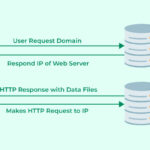In today’s data-driven world, businesses of all sizes are grappling with ever-increasing volumes of information. Efficiently managing and accessing this data is crucial for maintaining productivity, ensuring business continuity, and fostering innovation. This is where Storage Servers come into play, offering robust solutions for managing and safeguarding critical data assets.
Storage servers are specialized computers designed to store, manage, and retrieve digital data. Unlike general-purpose servers, they are optimized for high-capacity storage and efficient data access, making them indispensable for organizations dealing with large datasets. Understanding the capabilities and benefits of storage servers is essential for making informed decisions about your IT infrastructure.
Understanding the Core Functions of a Storage Server
At their heart, storage servers are built to handle data. However, their functionality extends far beyond simple data dumping. Key functions include:
- Centralized Data Storage: Storage servers consolidate data from various sources into a single, manageable location. This eliminates data silos, simplifies data management, and improves data accessibility for authorized users.
- Data Backup and Recovery: Robust storage servers are integral to data backup and disaster recovery strategies. They provide the capacity and reliability needed to store backups and facilitate quick data restoration in case of system failures or data loss events.
- Data Sharing and Collaboration: Storage servers enable seamless data sharing and collaboration across teams and departments. By providing a central repository, they ensure everyone works with the most up-to-date information, enhancing efficiency and teamwork.
- Scalability and Flexibility: Modern storage servers are designed to scale with growing data needs. They offer flexible configurations and expansion options, allowing businesses to adapt their storage infrastructure as their data volumes increase.
- Data Security and Protection: Security is paramount for any data storage solution. Storage servers incorporate various security features, including access controls, encryption, and data redundancy, to protect sensitive information from unauthorized access and data loss.
Types of Storage Servers: Choosing the Right Solution
The market offers a diverse range of storage server solutions, each tailored to specific needs and environments. Understanding the different types is key to selecting the optimal solution for your organization:
- Network Attached Storage (NAS): NAS devices are file-level storage servers that connect to a network and provide file-sharing services to multiple clients. They are known for their ease of use and cost-effectiveness, making them popular for small to medium-sized businesses and departmental storage.
- Storage Area Network (SAN): SANs are block-level storage networks that provide high-performance, dedicated storage access for servers. SANs are typically used in enterprise environments requiring high bandwidth and low latency for applications like databases and virtualization.
- Direct Attached Storage (DAS): DAS involves storage devices directly connected to a server, offering simplicity and direct access. While less scalable and flexible than NAS or SAN, DAS can be suitable for specific applications with limited sharing requirements.
- Cloud Storage Servers: Cloud-based storage servers offer off-site data storage and management, providing scalability, accessibility, and often cost savings. Cloud solutions are ideal for businesses seeking flexibility and reduced on-premises infrastructure.
- Unified Storage Servers: These servers combine NAS and SAN functionalities into a single platform, offering versatility and simplified management for organizations with diverse storage needs.
Optimizing Your Storage Server for Peak Performance
Simply deploying a storage server is not enough. To maximize its value and ensure optimal performance, consider these key optimization strategies:
- Right-Sizing Your Storage: Accurately assess your current and future storage needs to select a server with adequate capacity and scalability. Over-provisioning can lead to unnecessary costs, while under-provisioning can hinder performance and growth.
- Choosing the Right Storage Media: Select storage media (HDDs, SSDs, or hybrid) based on performance, capacity, and cost requirements. SSDs offer faster performance, while HDDs provide higher capacity at a lower cost per GB. Hybrid solutions balance performance and capacity.
- Implementing Data Deduplication and Compression: These technologies reduce storage space consumption by eliminating redundant data and compressing data volumes, improving storage efficiency and potentially lowering costs.
- Optimizing Network Connectivity: Ensure sufficient network bandwidth and low latency connectivity between the storage server and clients to avoid performance bottlenecks and ensure fast data access.
- Regular Monitoring and Maintenance: Proactive monitoring of storage server performance, capacity utilization, and health is crucial for identifying potential issues and ensuring smooth operation. Regular maintenance, including firmware updates and hardware checks, is also essential.
Dell’s Expertise in Storage Solutions
Dell Technologies is a recognized leader in providing comprehensive storage solutions, offering a wide portfolio of storage servers designed to meet diverse business needs. Dell’s offerings, such as PowerScale and PowerStore, exemplify cutting-edge storage server technology.
PowerScale, for example, is engineered for unstructured data and boasts exceptional scalability, reaching up to 186PB per cluster. This illustrates the capacity and flexibility modern storage servers can provide for demanding workloads. Similarly, PowerStore focuses on intelligent automation and data density, achieving up to 5x better data density compared to previous generations, showcasing the advancements in storage efficiency.
Dell’s commitment to security is also evident in their comprehensive storage portfolio, incorporating robust security features to protect valuable data assets. Their broad range of solutions and continuous innovation in storage technology underscore the importance of choosing a reputable vendor for your storage server infrastructure.
Conclusion: Investing in the Future of Your Data
Storage servers are more than just data repositories; they are foundational components of a modern IT infrastructure. By providing centralized, scalable, secure, and efficient data management, storage servers empower businesses to unlock the full potential of their data. Whether you opt for a NAS for streamlined file sharing, a SAN for high-performance applications, or a cloud-based solution for ultimate flexibility, choosing the right storage server is a strategic investment in your organization’s efficiency, resilience, and future growth. As data continues to grow exponentially, the role of robust and optimized storage servers will only become more critical.


